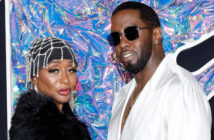There, the kid mainlined black American music from the thousands of platters at hand and emerged a unique virtuoso who mixed country licks on his guitar Lucille — as he would call his instrumental companions for 60 years — with city beats and whatever else spiced the mix.
Less than two years later, he cut “Three O’Clock Blues” for Ike Turner, which shot to the top of the R&B charts and stayed there for months. So B.B. (short for Blues Boy) King started touring and didn’t stop until last year.
He got his first big break in 1948 by performing on Sonny Boy Williamson’s radio program out of West Memphis, leading to steady engagements at the Sixteenth Avenue Grill in West Memphis and a 10-minute spot on WDIA.
As “King’s Spot” grew in popularity on WDIA, King shortened “Beale Street Blues Boy” to “Blues Boy King” and eventually B.B. King.
His ascent continued in 1949 with his first recordings, “Miss Martha King/Take a Swing with Me” and “How Do You Feel When Your Baby Packs Up and Goes/I’ve Got the Blues.” His first hit record “Three O’Clock Blues” was released in 1951 and stayed on the top of the charts for four months.
In 1970, he won his first Grammy for his trademark song, “The Thrill is Gone.” That same year, he debuted an all-blues show at Carnegie Hall and appeared on “The Ed Sullivan Show.” Over the years, he racked up 30 Grammy nominations and 15 wins, including two in 2000: one along with Eric Clapton for Best Traditional Blues Album for “Riding with the King” and another with Dr. John for Best Pop Collaboration with Vocals for “Is You Is, or Is You Ain’t (My Baby).” His last was in February 2009 for Best Traditional Blues Album for “One Kind Favor” (2008).
Throughout his career, King evolved with the times to incorporate contemporary trends and influences without straying from his Delta blues roots. Whether he was sharing the stage with U2 on “When Loves Comes to Town” — a scene memorialized in the 1988 concert film “Rattle and Hum” — or playing in the East Room of the White House with Buddy Guy, Mick Jagger, Jeff Beck and others, King’s single-string guitar notes trilled with an unmistakable vibrato from his hollow-bodied Gibson affectionately known as Lucille.
His sound defined the blues for generations of listeners and musicians. The chairman of the board is gone, but the thrill will live for as long as his records are played.



